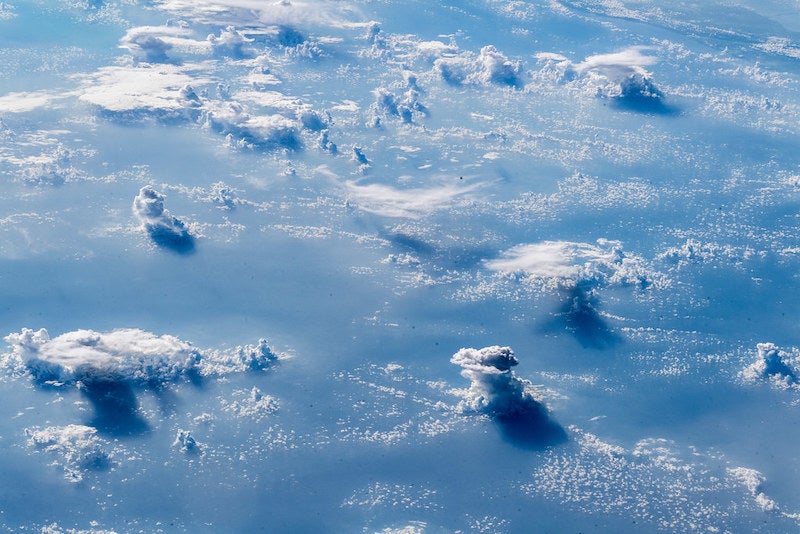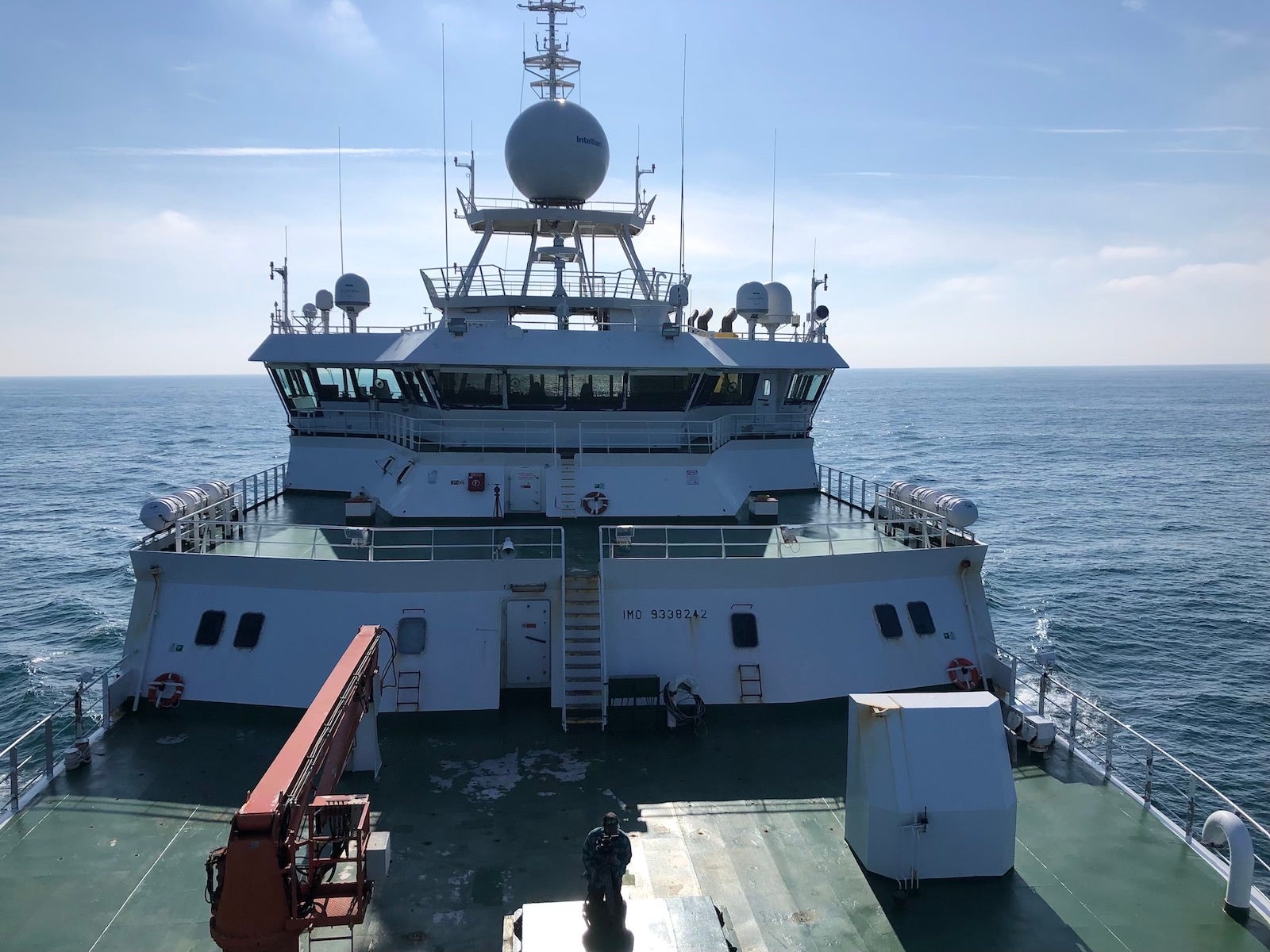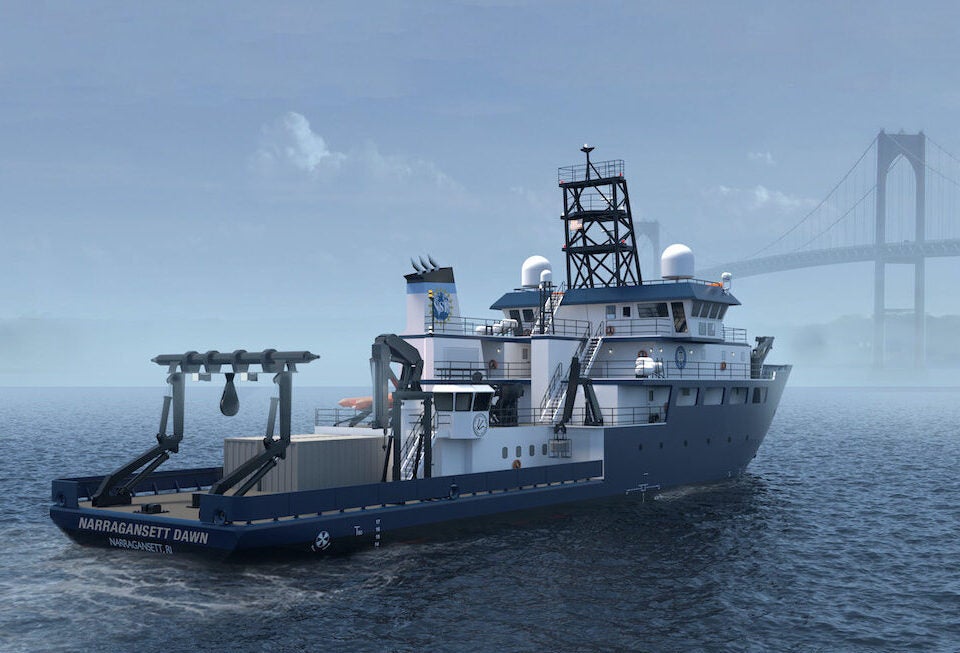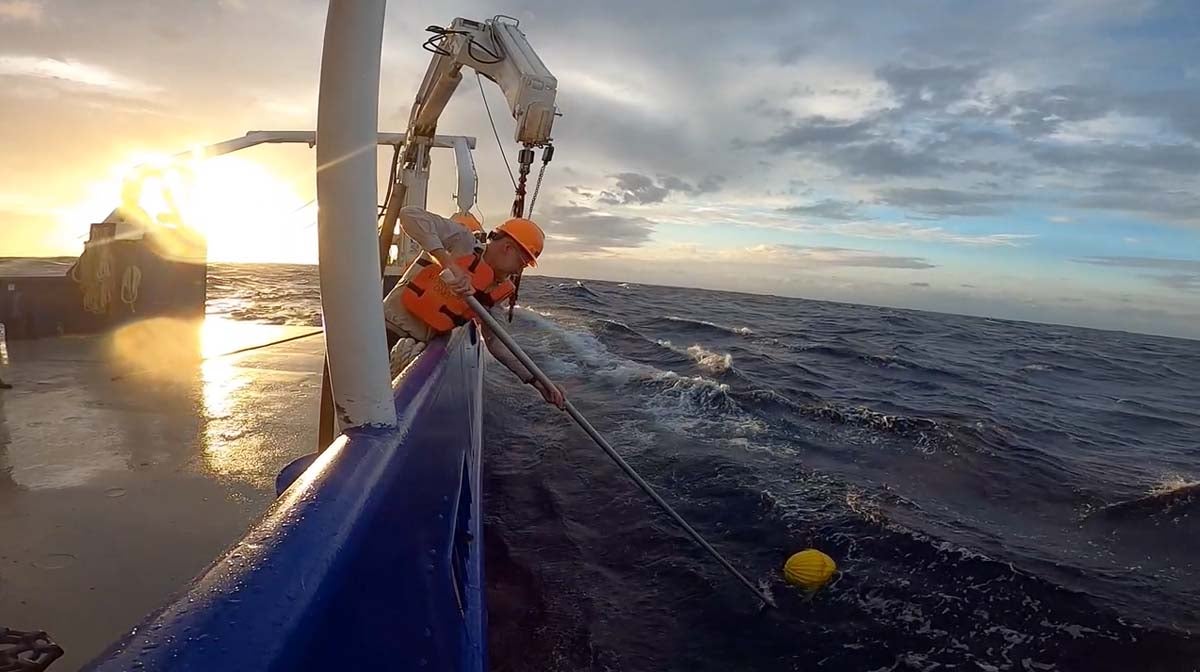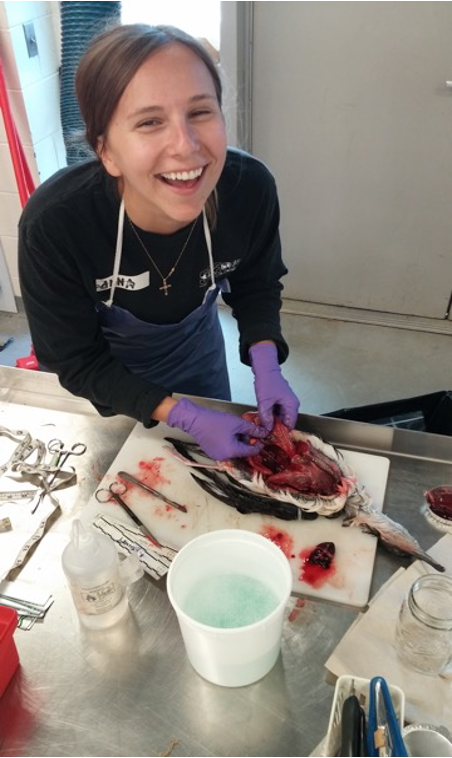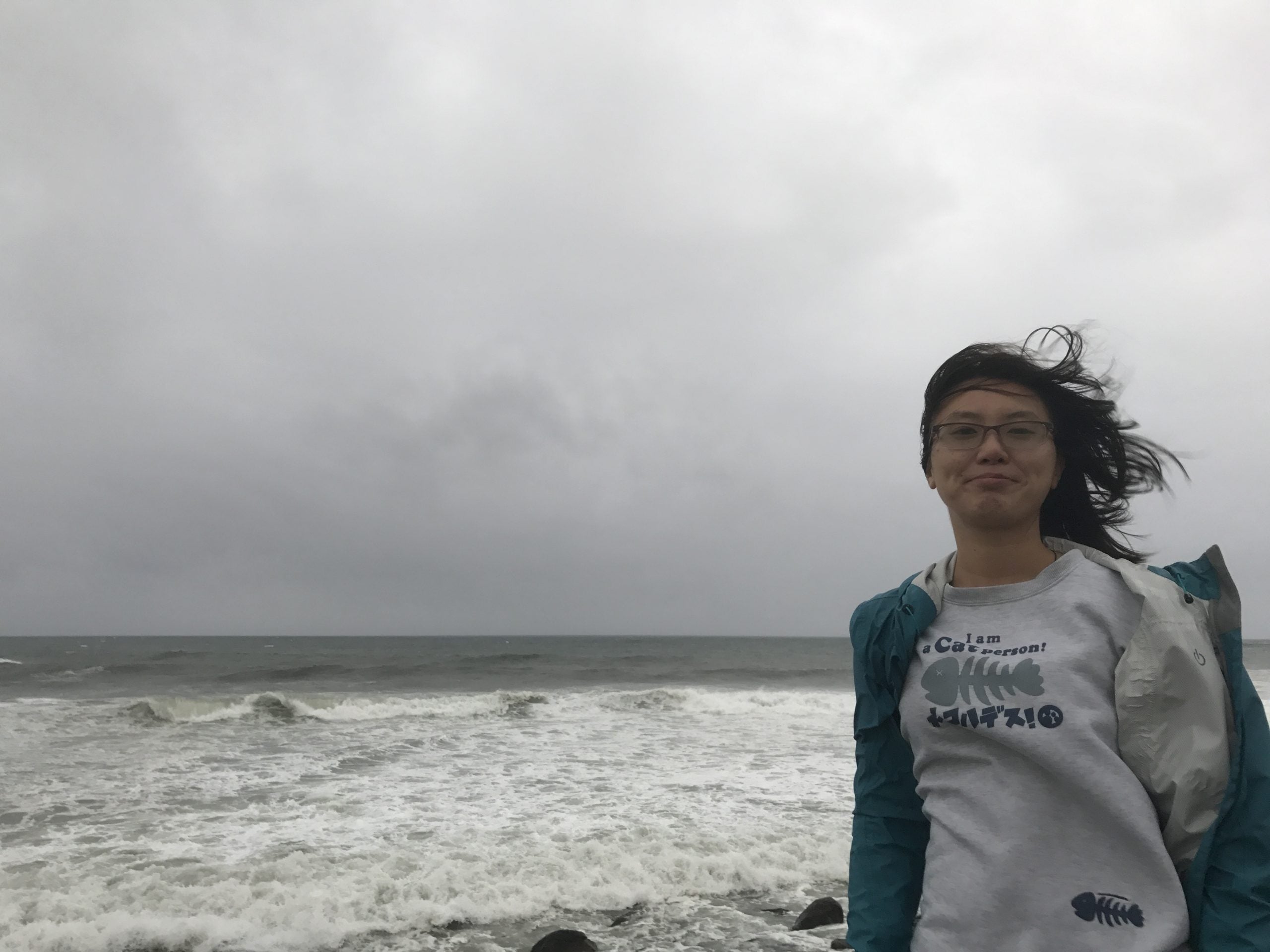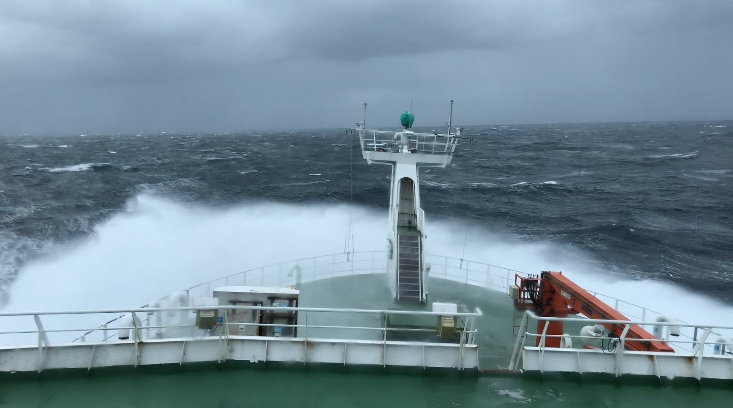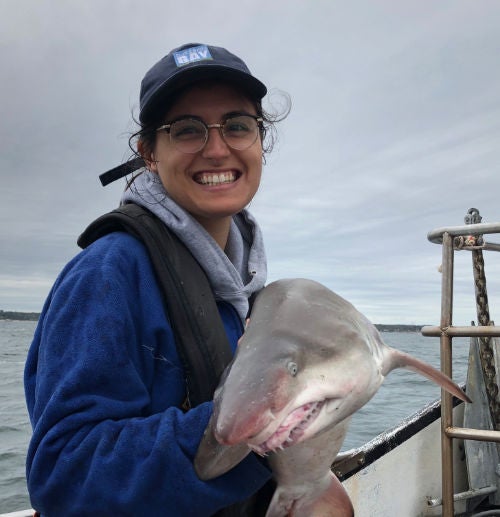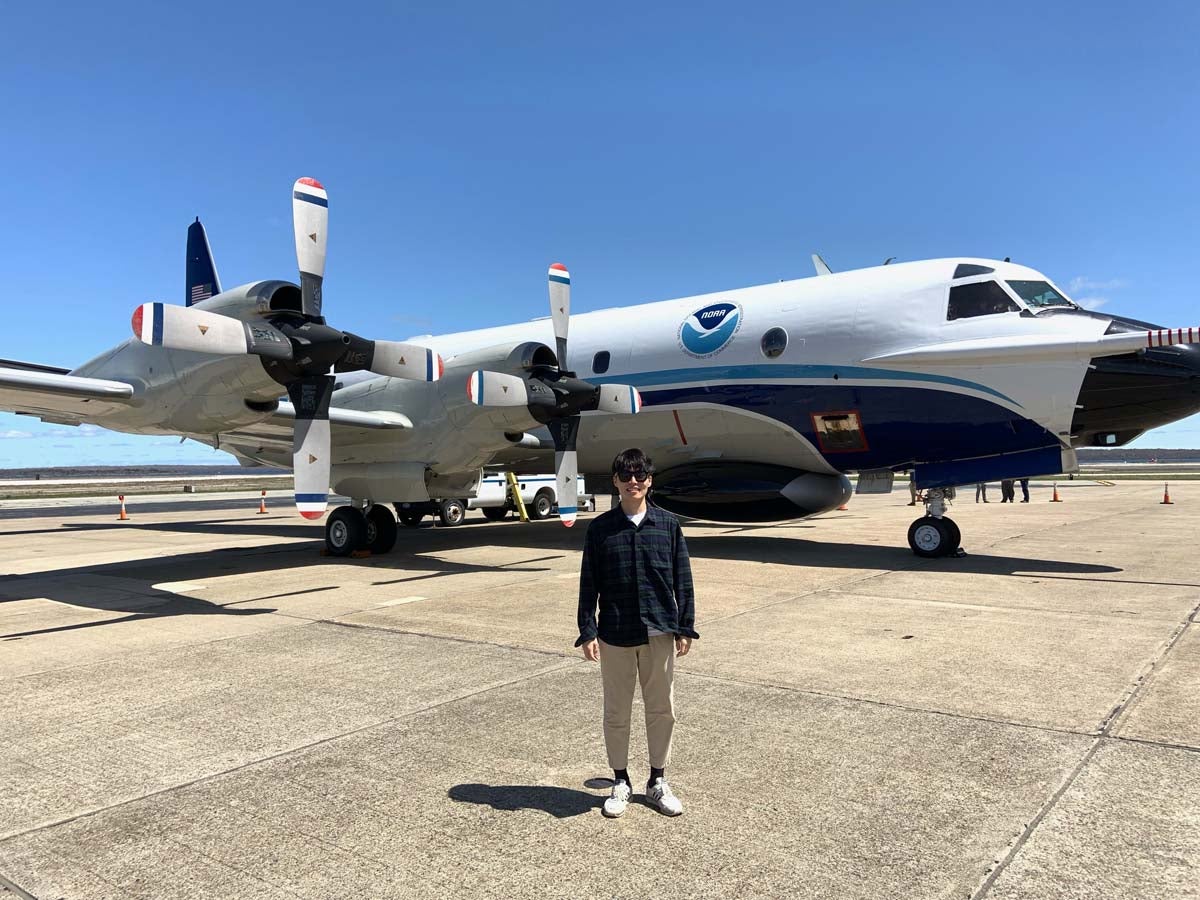The nightly trek of small marine animals from the ocean depths to the surface has been called the largest migration on Earth, and new research led by GSO’s Melissa Omand finds that some zooplankton swim up and down in response to shifts in light due to cloud cover as well.
Continue reading "Passing clouds cause some marine animals to make mini-migrations"Category: Stories
Welcomed home by calm seas
Read the third and final post from GSO Ph.D. candidate Diana Fontaine about her experience working on the NASA EXPORTS project in the North Atlantic.
Continue reading "Welcomed home by calm seas"URI to name new research vessel Narragansett Dawn
The National Science Foundation’s new Regional Class Research Vessel that will soon call the University of Rhode Island’s Narragansett Bay Campus home has a name: Narragansett Dawn.
Continue reading "URI to name new research vessel Narragansett Dawn"Gulf of Mexico research cruise: Studying the Loop Current
GSO Ph.D. student Ali Johnson writes about, and shares photos from, a recent research cruise in the Gulf of Mexico with four other GSO scientists as part of an ongoing study on the Loop Current.
A team of five GSO scientists
Continue reading "Gulf of Mexico research cruise: Studying the Loop Current"GSO Profiles-GSO Graduate Angela Stahl
GSO graduate Angela Stahl really enjoyed her research experience at GSO.
Continue reading "GSO Profiles-GSO Graduate Angela Stahl "GSO Profiles-GSO Graduate Anna Ruth Robuck
GSO profile for GSO graduate Anna Robuck about her work using seabirds to look for novel human pollutants.
Continue reading "GSO Profiles-GSO Graduate Anna Ruth Robuck"GSO Profiles-GSO Graduate Xuanyu Chen
GSO Profile for GSO graduate Xuanyu Chen who received her Ph.D. in August 2020.
Continue reading "GSO Profiles-GSO Graduate Xuanyu Chen"Fitting in science between the roaring waves and blustery wind
Read the second in a series of posts from GSO Ph.D. candidate Diana Fontaine who’s reporting from the North Atlantic about her experience working on the NASA EXPORTS project.
Continue reading "Fitting in science between the roaring waves and blustery wind"GSO Profiles – GSO Graduate Nina R. Santos
Nina R. Santos received her M.S. from GSO in December and is continuing her ocean science career in a Ph.D. program
Continue reading "GSO Profiles – GSO Graduate Nina R. Santos"GSO Profiles-GSO Graduate Il-Kyeong Ma
Profile of December 2020 GSO graduate Il-kyeong Ma
Continue reading "GSO Profiles-GSO Graduate Il-Kyeong Ma"
